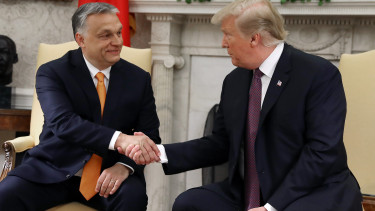Fifteen Hungarian economists about the Orbán-package

An economic and social crisis is unfolding in Hungary. The economic measures proposed by the Hungarian government are insufficient to address the economic crisis and do not even attempt to address emerging social issues. At the time of a national crisis, as economists and responsible citizens, we believe it is important to express our concerns and encourage the government to take stronger steps.
We believe that our government can only successfully manage the crisis if it has the trust of citizens and employers, if we have broad agreement on shared goals, and if we are convinced that our sacrifices are necessary, equitable, and commensurate with our objectives. The measures publicized by the Hungarian government do not point in this direction and are not going to generate broad agreement and trust. A sense of solidarity among members of our society must be an important element in building this trust. However, this program does not ask the more fortunate members of our society to contribute to our response to the crisis.
Among other problems, we are concerned that:
- The government’s economic response does not clearly define its goals and the tools that are proposed to accomplish these goals --- many key details are not available. This does not only limit our ability to provide an evaluation of the government’s response but also maintains harmful uncertainty among Hungarian workers and employers.
- The government wishes to cover most of the costs of its response from reallocating resources within the budget, by taxing companies, and by taking resources from local governments. This means that the government is failing to provide necessary additional resources to improve our economic outlook and at the same time it is damaging the trust of Hungarians in its intentions. Taking resources from local governments endangers delivery of crucial services at the time of this unprecedented crisis.
- It appears that the government either does not realize or does not acknowledge the severity of the crisis, and as a consequence is unwilling to provide the additional financial resources that are needed to save the Hungarian economy. The government and the Hungarian National Bank have published projections for the budget deficit and economic growth that are obviously unrealistic and demonstrate that our decision makers are out of touch with reality. These projections do not only damage their credibility but are also harmful because they make it impossible to provide an appropriate economic stimulus from much more substantial spending increases. The sources of spending that have been publicized are not enough to meaningfully cushion our economy from the 5-10% recession projected by expert analyses in Hungary and abroad.
- The government has offered no solutions to the problems of Hungarians who are losing their jobs at unprecedented rates and are facing a dire situation. The idea of a “work-based” society pushed by the government and further reliance on workfare are misleading and inappropriate in the current situation.
We propose that the Hungarian government take the following steps:
- The full implementation of a program under which the government guarantees workers’ wages based on policies implemented in Germany.
- The replacement of income losses that cannot be addressed by guaranteeing wages through transfer programs.
- The extension of unemployment insurance, the increase of cash assistance to families, and an expansion of transfers to individuals who are unable to work.
- The provision of substantial financial support to local governments and non-governmental organizations who carry out crucial work at this time of crisis and who are able to offer direct and personalized help to those most in need.
- The involvement of the more fortunate members of our society, making sure that the idea of solidarity is central to our economic response. A reduction in non-essential spending along with a substantial increase in government spending overall, as an increasing budget deficit should not hinder effective government action.
Péter Bihari (Associate professor at Budapest University of Technology and Economics)
Péter Ákos Bod (former Minister of Industry and Trade and former Governor of the National Bank of Hungary)
Attila Chikán (former Minister of Economic Affairs, Full Member of the Hungarian Academy of Sciences)
Péter Felcsuti (former Chief Executive of Raiffeisen Bank Hungary, former President of the Hungarian Banking Association)
Dóra Győrffy (Professor at the Pázmány Péter Catholic University in Hungary)
Júlia Király (former Deputy Governor of the National Bank of Hungary, Professor of Finance and Monetary Economics, Visiting Professor of finance at Corvinus University, Budapest and Associate Professor at International Business School, Budapest)
Tamás Mellár (Professor at the University of Science in Pécs, Doctor of the Hungarian Academy of Sciences)
Zoltán Nagy
Gábor Oblath (Institute of Economics, Centre for Economic and Regional Studies, Hungarian Academy of Sciences, former member of the central bank’s Monetary Council)
Éva Palócz (CEO of Kopint-Tárki Institute for Economic Research Co.)
Mária Zita Petschnig (senior researcher of the Financial Research Institute (Pénzügykutató) in Budapest)
Dániel Prinz (PhD student in Health Policy and Economics at Harvard and a Pre-Doctoral Fellow in Retirement and Disability Policy Research at NBER)
Werner Riecke (Public Debt and Government Bond Market Expert, Monetary Policy Advisor, former Deputy Governor and voting member of the Monetary Council at the National Bank of Hungary)
Ágota Scharle (Co-founder and senior research partner of the Budapest Institute for Policy Analysis, former Head of Economic research division at the Ministry of Finance)
András Vértes (Chairman of GKI Economic Research Co.)
Cover photo: Shutterstock






